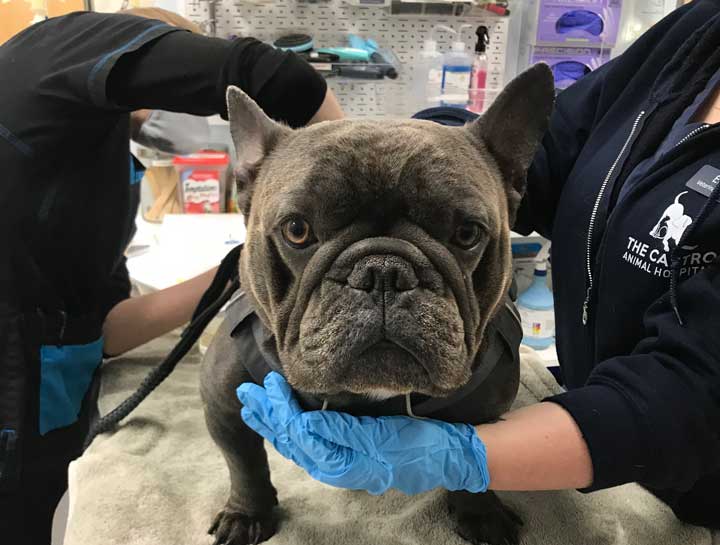Pet Emergencies
Find treatment fast.
Please note we are not a 24 hour emergency facility & do not function as a walk-in critical care hospital. If you think your pet may require emergency care please do not hesitate to call our office immediately however we may direct you to an emergency hospital depending on veterinarian availability & individual case details.
If it is outside of regular working hours we recommend you contact the 24-Hour Emergency Service at:
- SF Animal Medical Centre
- Animal Care & Emergency Services (ACES)
- Blue Pearl (Daly City)
- SAGE (The Mission & Redwood City)
- OakVet (Oakland)
Signs Your Pet May Need Emergency Care
Your dog may need emergency care because of severe trauma, choking, heatstroke, an insect sting, household poisoning, or other life-threatening situation. Here are some signs that emergency care is needed
- Pale gums
- Rapid breathing
- Weak or rapid pulse
- Change in body temperature
- Difficulty standing
- Apparent paralysis
- Loss of consciousness
- Seizures
- Excessive bleeding
Next Steps
Pets who are severely injured may act aggressively toward their pet parents, so it’s important to first protect yourself from injury.
For dogs: Approach your dog slowly and calmly; kneel down and say his name. If the dog shows aggression, call for help. If he’s passive, fashion a makeshift stretcher and gently lift him onto it. Take care to support his neck and back in case he’s suffered any spinal injuries.
For cats: Gently place a blanket or towel over the cat’s head to prevent biting; then slowly lift the cat and place her in an open-topped carrier or box. Take care to support the cat’s head and avoid twisting her neck in case she’s suffered a spinal injury.
Once you feel confident and safe transporting your pet, immediately bring them in. We recommend calling the clinic on your way so the staff knows to expect you and your pet.
First Aid Treatments to Perform At Home
Most emergencies require immediate veterinary care, but first aid methods may help you stabilize your pet for transportation.
If your pet is suffering from external bleeding due to trauma, try elevating and applying pressure to the wound.
If your pet is choking, place your fingers in his mouth to see if you can remove the blockage.
If you’re unable to remove the foreign object, perform a modified Heimlich maneuver by giving a sharp rap to his chest, which should dislodge the object.
Performing CPR on Your Pet
CPR may be necessary if your pet is unconscious. First, check to see if he or she is breathing. If not, place them on their side and perform artificial respiration by extending their head and neck, holding their jaws closed, and blowing into their nostrils once every three seconds. (Ensure no air escapes between your mouth and the pet’s nose.) If you don’t feel a heartbeat, incorporate cardiac massage while administering artificial respiration—three quick, firm chest compressions for every respiration—until your dog resumes breathing on their own.
What To Do If Your Pet Eats Something Poisonous
If you suspect your pet has ingested a toxic substance, please call our office immediately. If it is outside office hours consider taking your pet directly to a 24-Hour Emergency facility or contacting the ASPCA Animal Poison Control Center's 24-hour hotline at (888) 426-4435. Trained toxicologists will consider the age and health of your pet, what and how much he ate, and then make a recommendation—such as whether to induce vomiting—based on their assessment. A $65 consultation fee may be applied to your credit card.

